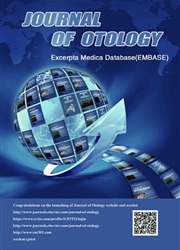

 中文摘要:
中文摘要:
目的为研究坑道混合型噪声及随身听设备对人体听觉系统的影响规律,进一步加强对坑道作业人员的听力防护.调查坑道作业噪声及随身听对部队官兵听觉系统的危害。方法对总参某部从事坑道作业人员73人和长时间使用MP3的人员53人进行问卷调查,除外耳鼻咽喉科其他疾病,进行纯音测听和声导抗检查。听力检查前脱离噪声20小时以上,在隔音室内进行纯音和声导抗检查。用Stata软件对听力检查结果进行统计分析。结果听力检查发现坑道作业组出现语频听力下降3人(4.11%,3/73),平均听阈50dBHL;出现高频听力损伤30人(41.10%,30/73),频率主要为3.0kHz、4.0kHz、6.0kHz、8.0kHz高频区,平均听阈46dBHL。使用MP3的人员中无语频听力下降,高频听力损伤人数为17人(32.08%,17/53),平均听阈45dBHL。坑道作业组语频听力损失比例与长期使用MP3组无统计学差异(P〉0.05),高频听力损失两组发生比例差异无显著性(P〉0.05)。结论坑道噪声可能引起坑道作业人员的听力下降,需进一步加强噪声防护。长期使用MP3也可引起听力损伤。
 英文摘要:
英文摘要:
Objective To study the influence of tunnel operation noises and personal listening devices on hearing. Methods Subjects included 73 tunnel operation personnel and 53 individuals with long history of using MP3 players. Each subject was asked to complete a questionnaire to exclude other otorhinolaryngological diseases. Audiometry (Madsen 922) and acoustic immittance (Madsen 901 ) were used to evaluate the level of hearing loss after a 20 hour break from noise exposure. Results Average unprotected noises exposure was 4-6 hours per day among tunnel operators. Of these individuals, 3 (4.11%) showed hearing loss in speech frequency range (PTA = 50 dB HL ). High-frequency hearing loss was detected in 41.10 % (30/73) of the tunnel operators. No speech frequency hearing loss was found among MP3 player users, although 17 in this group (32.08%) showed high-frequency heating loss. The rates of speech frequency and high- frequency hearing loss among the two groups were not statistically different (P 〉 0.05). Conclusion The data indicate that tunnel noises can cause hearing loss in unprotected individuals and that long-term use of personal listening devices may also harm the sensitivity of human hearing, in a way similar to tunnel noise.
 同期刊论文项目
同期刊论文项目
 同项目期刊论文
同项目期刊论文
 期刊信息
期刊信息
